12/08/2018
The real estate market in the first half of 2021 is going to be quite arduous when continuously suffering the effects of the Covid-19 disease outbreaks and continuous land fevers. Experts say that from now until the end of the year, the recovery of the real estate market will depend greatly on the disease control situation and the speed of vaccination. However, there are still many positive signals in the market segments.

The Covid-19 epidemic appeared at the end of 2019, but the real estate market was really affected from mid-2020, and will be severely affected in early 2021 when both dealing with the epidemic and diving into madness in the middle of the year. continuous earthquakes.
When the epidemic was temporarily under control, the land fever cooled down, thinking that the market was ready for a recovery process because of positive signs, at the end of April, the Covid-19 wave broke out again at a rapid pace. rapid spread. This is not only a steel punch that has the strongest impact on the socio-economic situation, but also a blow that hurts a number of segments such as townhouses, retail space, and resort real estate.
According to experts from Savills Vietnam, the retail market is facing an unprecedented challenge when the homeowner is no longer the one who has the upper hand, but has to come up with transformative measures to survive. adapt to the "new normal" situation.
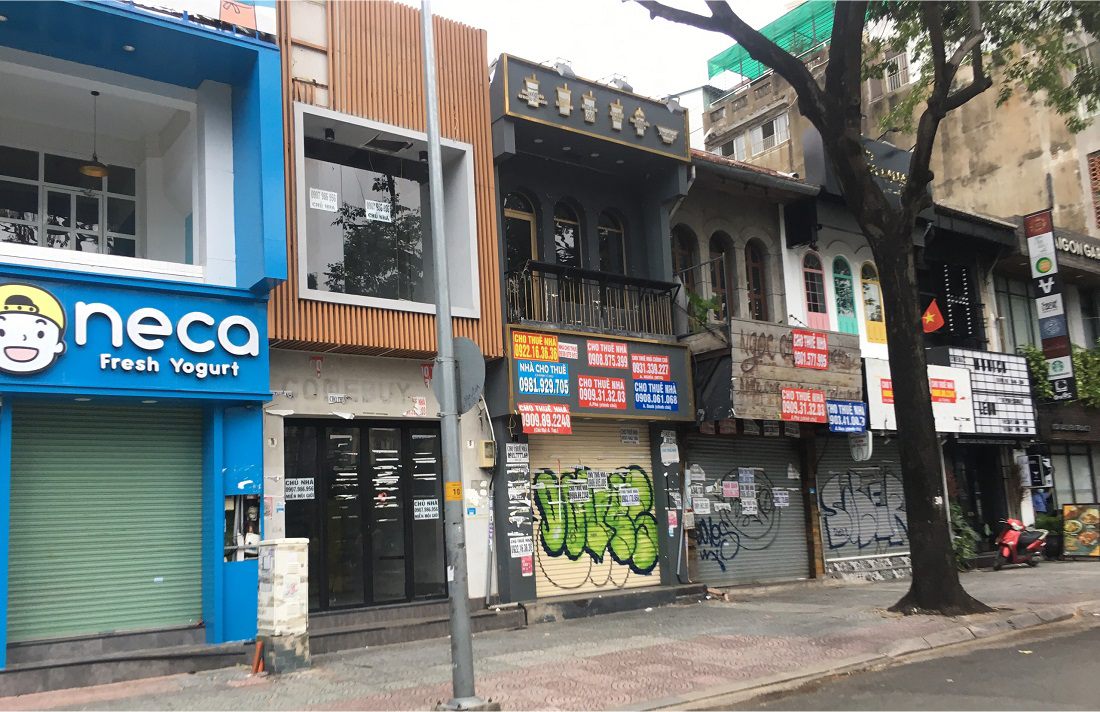
Facing the 4th wave of Covid-19, some premises even though tenants have built walls for construction, still accept losses and proceed to pay ground due to changes in retailers' strategies to adapt. with the pandemic and boost sales through e-commerce.
This has resulted in slow occupancy growth in the retail real estate market: corner townhouses on high-traffic streets have better rental rates, while other areas, even In busy premises such as Ho Tung Mau, Huynh Thuc Khang, and Dong Khoi (District 1, Ho Chi Minh City), the occupancy rate is also affected a lot.
The situation in Hanoi is also not better when many restaurants and eateries have to close because business results cannot cover the cost of space.

Looking at the macro-economic picture and social impacts, in the first half of 2021, despite the desire to achieve the dual goals of disease control and economic growth, in reality, Vietnam still faces many challenges. face many difficult problems.
Dr. Su Ngoc Khuong, Senior Director of Savills Vietnam, said that with the tight security situation, domestic and foreign investors do not have many convenient conditions in travel, trade and the real estate market. Recently witnessed a decrease in purchasing power, investors are in a state of caution and caution when deciding to invest in real estate.
“Particularly for good products, this is an opportunity to demonstrate the product value and potential of reputable developers in the market. However, for products that are not suitable, in the current economic conditions, I think this is a difficult time for the market to absorb these products. In addition, the legal issue of the projects is still a story that has lasted for many years, leading to limited primary supply in the market," said Mr. Khuong.
Notably, in the first 6 months of 2021, the southern market has almost only a few new projects in Ho Chi Minh City (mid-high-end and high-end segments) and neighboring provinces, including Binh Duong. Many projects planned to launch this year due to the impact of the epidemic situation also had to adjust the implementation time.

Mr. Nguyen Van Dinh, Vice Chairman of the Vietnam Association of Realtors (VaRS), acknowledged that the market is currently going very badly due to the heavy image from the 4th Covid-19 outbreak, causing both The economy in general is "stunned".
In the context that the epidemic is still tense, the market is complicated, it is difficult to answer when the market will return to the state of normal development.
As for the real estate market, all activities have almost stopped. All transactions and investment activities stand still.
According to Mr. Dinh, early this year, the market was disturbed by the continuous land fever. After the local government intervened, the land fever cooled down but also made many investors embrace bitter fruit. The market then did not have time to regain its development rhythm, and continued to be "compensated" by the 4th Covid wave.
Besides, the high selling price, exceeding the acceptance of the market also made the transaction rate low. This leads to the fact that there are many reputable projects but the absorption and transaction rates are very low.
As can be seen, real estate prices are not reflecting the law of supply and demand. Supply is scarce, price is too high, difficult to accept. In addition to the impact of the epidemic, supply and demand become more and more parallel.

Forecasting the real estate market from now until the end of the year, Mr. Khuong of Savills said that the market will not have many breakthrough changes, because the Vietnamese economy is still struggling to bear the damage caused by the epidemic. .
According to Mr. Khuong, despite having to struggle with many challenges under the pressure of the epidemic, this is only a short-term slowdown of the domestic real estate market.

Mr. Khuong said that in the scenario of market recovery, residential real estate will be the most active market because the real demand for housing is still the urgent need of the people. However, the absorption rate of the market will not be as high as in previous years because people buying houses to live in often have to use a part of bank loans as equity.
Given the current situation, when many people have limited income, lost their jobs or have their wages reduced, and do not have many sources of accumulation, the purchasing power in the market will be more modest than in previous years, mainly focusing on distribution. affordable housing segment in major cities across the country.

Besides, there are transactions from long-term investors. Although real estate prices in the market have declined like in the 2009-2010 period, there are areas where prices have fallen by 20-30% during difficult times, the apartment segment is still the hottest focus. Possessing the lust of many investors with the tendency of real estate prices to continuously increase over time.
Nguyen Hoai An, Director of Research and Development Consulting, CBRE Vietnam, said that the recovery and development of the real estate market in general in the second half of 2021 will largely depend on the control situation. disease control and vaccination deployment speed. However, there are still many positive signals in the market segments.

For the apartment market, new sales for the whole year 2021 is expected to be maintained at or higher than 2020. Positive demand in both Hanoi and HCMC markets will support the increase. sales.
In addition, the expansion of the housing market in the two major markets to neighboring provinces contributes to product upgrading, setting new standards in the local market, on the other hand, helping home buyers more options.
Ms. An also added that, for the segments of the apartment market for sale, products in the mid-end segment at convenient traffic locations as well as the next sales in existing urban areas will be continues to attract homebuyers to live in the Hanoi market and is expected to book positive sales.
In addition, the semi-detached villa segment with new supply from upcoming urban projects will continue to be a product line that attracts the attention of Hanoi home buyers, including both residential and commercial buyers. investment.
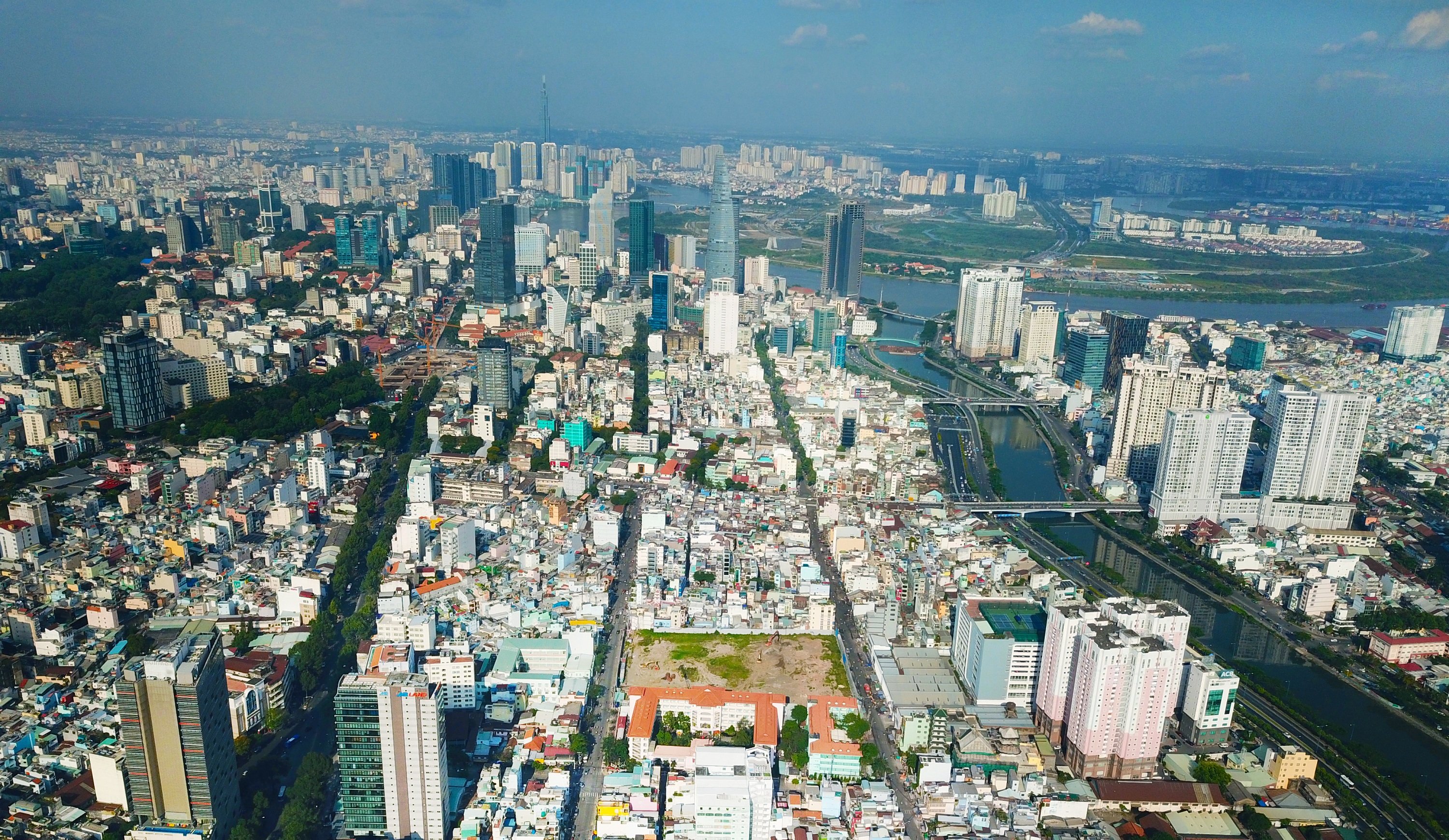 In the city market. In Ho Chi Minh City, it is expected that the supply in the last 6 months of the year will mainly be in the high-end and luxury segments and townhouses and villas located in complex projects and urban areas.
In the city market. In Ho Chi Minh City, it is expected that the supply in the last 6 months of the year will mainly be in the high-end and luxury segments and townhouses and villas located in complex projects and urban areas.
It is expected that if the complicated epidemic situation in Ho Chi Minh City cannot be controlled in July, the purchasing power at these projects will be significantly lower. The market leading trend of Ho Chi Minh City will be products in the more affordable segment, in the neighboring provinces of Binh Duong, Dong Nai and Long An.
With infrastructure projects in the pipeline such as Ring Road 3 and Long Thanh airport, together with a plan to focus more infrastructure investment capital on southern provinces in the near future, it will support huge amount for the development of urban areas in these provinces, similar to the trend in Hanoi in recent years.

As for the industrial real estate market, experts say that the interest of domestic and foreign investors in Vietnam still exists. However, the market will still face restrictions on travel and flights, making investment in Vietnam's industrial real estate limited, not as expected by the market.
“In the past, we expected industrial real estate to be a hot spot for the market, given normal economic conditions. However, in recent times, the re-emergence of Covid-19 in Vietnam as well as customs clearance issues have become an obstacle for investors to consider when they want to invest in public real estate. Vietnamese industry," said Mr. Khuong.
This expert also emphasized that the development of industrial real estate in Vietnam depends on infrastructure, as well as the disbursement speed of public policy groups. This is the key factor that helps Vietnam's industrial real estate gain advantages, helping investors decide to invest in industrial parks.
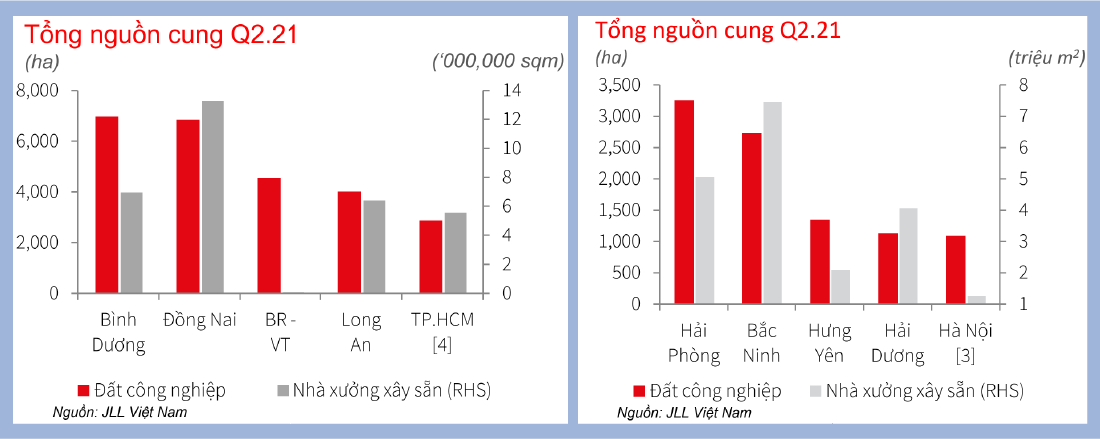
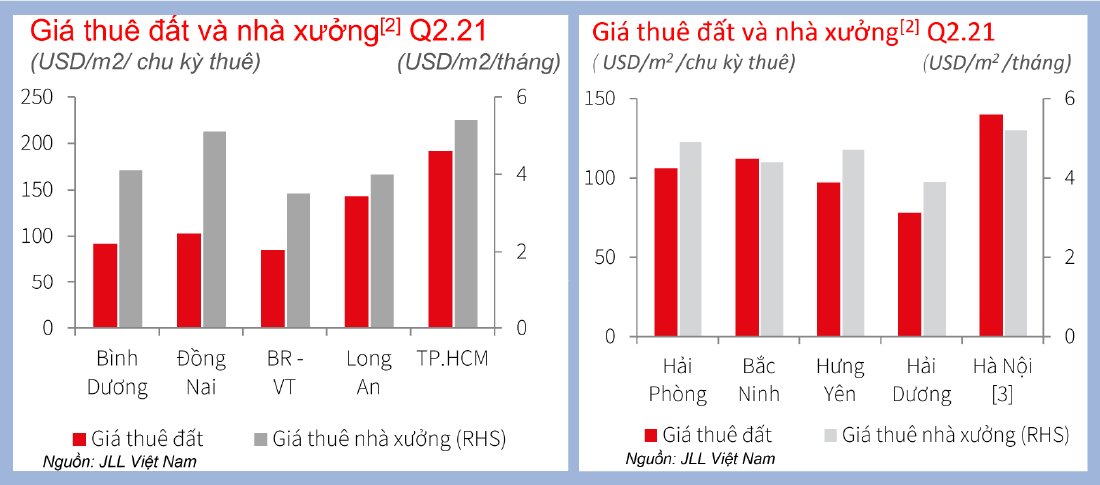
Agreeing, Dr. Nguyen Tri Hieu also said that before the outbreak of the 4th Covid-19 wave, Vietnam was considered one of the countries with good disease control, the industrial real estate segment was in the sights of many investors. foreign private.
Recently, however, two phenomena have slowed down this situation. Those are industrial zones with a large number of infections such as in Binh Duong, Bac Giang and Bac Ninh. In Ho Chi Minh City and the industrial zones around Ho Chi Minh City are also being severely affected.
That has affected the psychology of industrial real estate investors in particular and the market in general.

More optimistically, Ms. An of CBRE forecasts that the industrial real estate market will receive high rental demand in both industrial land and warehouses for rent. Rent is expected to continue to be maintained at a high level. The market is expected to receive more new supply, both in warehouses/factories and industrial land.
In which, the average growth rate of industrial land supply from now to 2023 in the key industrial development provinces of class 1 in the north and south is expected to be 9% and 8% year-on-year, respectively. .
Regarding the supply of ready-made warehouses and factories, the total supply of these two products will increase by an average of 19%/year in the north and 10%/year in the southern market from now to 2023.
These projects are all developed by large developers, which are expected to have high quality infrastructure and services, but also have high rents compared to the current market average.

The two segments that have suffered the most from the outbreaks of the disease are resort real estate and retail space.
In the field of tourism and resort real estate, Mr. Khuong of Savills said that in the last 6 months of the year, the impact lasting from 3 outbreaks so far has made this segment still suffer heavily despite the situation. disease is effectively controlled.

Meanwhile, CBRE leaders expect that in the last 6 months of this year, domestic customers will still be the main source of demand for this market. Discount packages of hotels, resorts and airlines will continue to increase the source of domestic tourists when the epidemic situation in the country is under control.
In addition, plans to welcome international tourists in the longer term will also need to be carefully prepared to be ready to receive this demand while still ensuring safety.
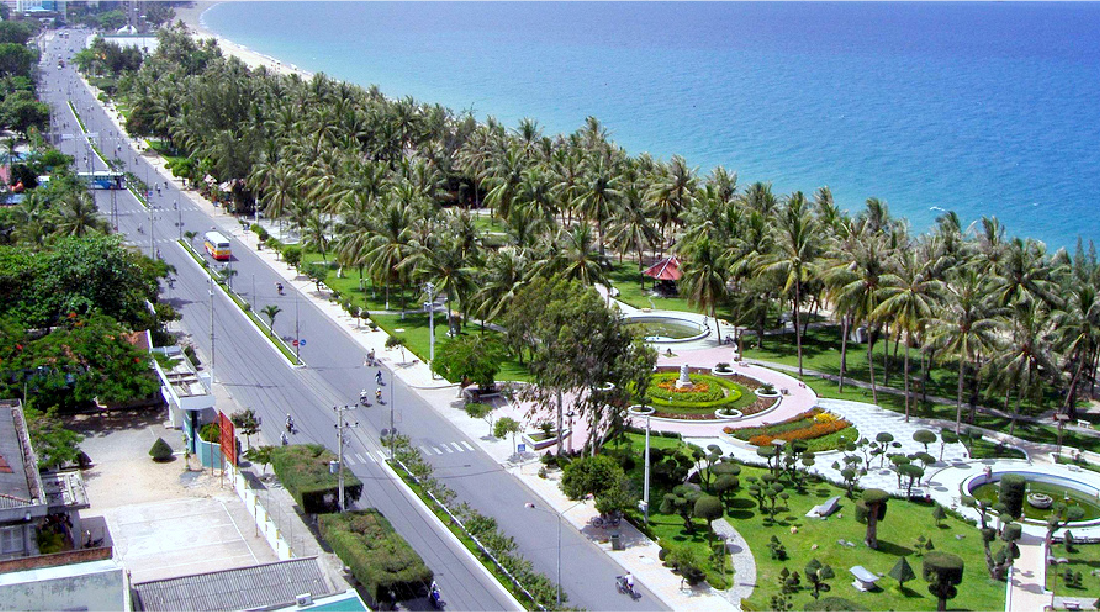
Regarding the retail market, in Hanoi, Ms. An of CBRE said that in the second half of the year, an additional 73,000 m2 of new retail space is expected to come from shopping malls in housing projects or urban areas.
According to Ms. An, with a number of new stores in the culinary and fashion industries completing their interiors in the second quarter and preparing to open at the end of the year, consumers in Hanoi will have many different experiences. more choices when shopping and is expected to improve the flow of people to shopping center projects.
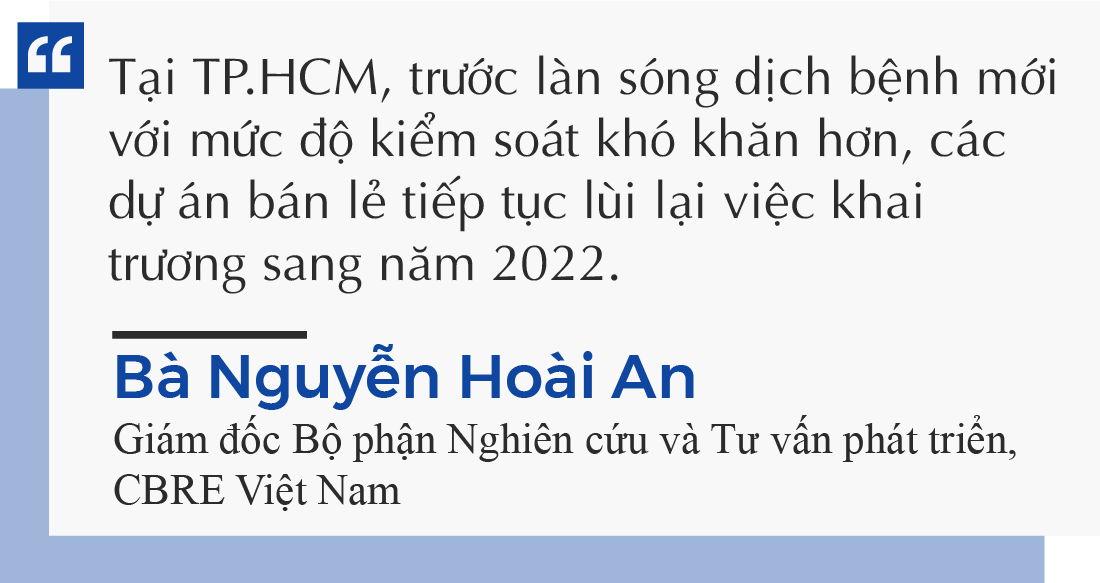
In Ho Chi Minh City, in the face of a new wave of epidemics with a more difficult level of control, retail projects continue to delay their opening until 2022. From now to the end of the year, most investors of shopping malls will will apply to support existing tenants, depending on the level of business impact as well as future buyer traffic. Vacancy areas will be gradually improved, but will also face competition from rentals in townhouses, podiums... Industry expansion until the end of the year continues to focus on convenience stores, coffee and showroom.

Mr. Nguyen Van Dinh said that market movements from now to the end of the year will depend on the behavior of policies and the market. If the epidemic situation persists, it is possible that the market will deteriorate exponentially. If the epidemic is controlled by the end of the second quarter, the market will recover in the third quarter.
Then the market will have to correct. If prices and supply do not improve, do not adjust to meet demand, there will continue to be a scarcity of goods, supply and demand will not meet, goods cannot be consumed, and then the market will be in crisis. .
This has been warned before, if not self-regulating by policy, and awareness of market participants, especially project owners who keep "slapping water with the rain" to raise the selling price, it will leading to the situation that people with real needs will not accept or they will not be able to pay that price.
For investment and speculation groups, they also have to review the possibility of profit. If the investment is too high, there will be no profit, which means they will not make money.
Therefore, there are problems to do after the market recovers, which is to regulate prices and supply. If the price increase cannot be controlled, leading to high inflation, the input of real estate will also be under very high pressure, thereby further causing real estate prices to increase, transactions will also decrease.
"As I said, supply and demand do not meet, real estate goods cannot be sold, the market will be broken," Dinh emphasized.
According to Cafeland.vn